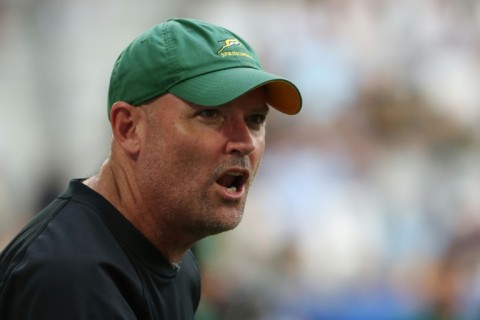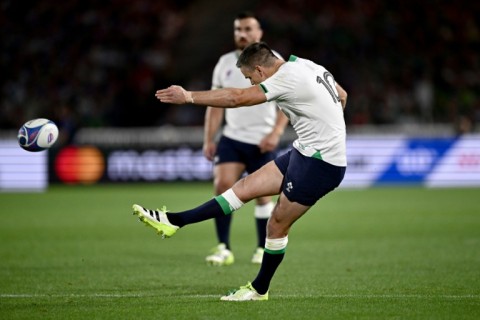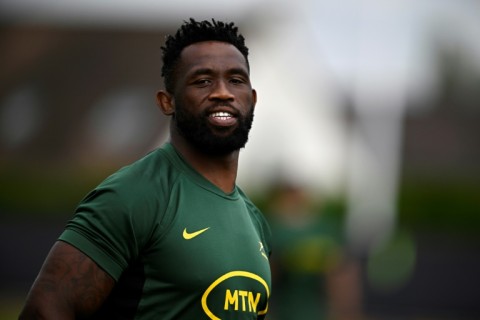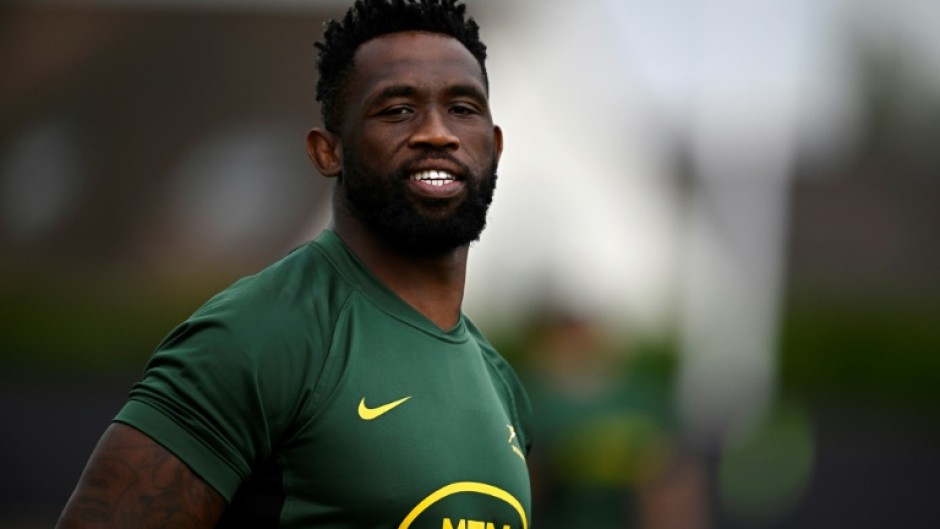PARIS - Ireland and South Africa will meet for the first time in a Rugby World Cup on Saturday in a blockbuster that pitches the world number one Irish against the defending champions.
Ireland come into the match on a 15-match winning streak which includes a victory over the Springboks last November and a Six Nations Grand Slam this year.
The Springboks, though, look as if they are peaking at the right time and inflicted a record 35-7 defeat on fellow three-time champions New Zealand in a warm-up match.
Both sides have two wins from two so far, although the South Africans may have an advantage over the Irish in that they were given a proper run-out in the 18-3 win over Scotland.
AFP Sport picks out three potential key areas for the match at the Stade de France:
The calculated risk

"It is a risk but a calculated one," said South Africa head coach Jacques Nienaber after he and director of rugby Rassie Erasmus opted for a split on the replacements bench of seven forwards and one back.
It is the same tactic as they deployed in the thrashing of the All Blacks in August, although Nienaber said he does not view the two opponents as similar.
A first ever at a World Cup, Nienaber dismissed concerns of it being dangerous for their opponents.
"In terms of player safety, I don't get that," he said.
"Nothing to stop anyone else doing that.
"(It's a) sad day if you are innovative within the laws and people want to change that."
Nienaber says several of the forwards on the bench can fill in in the backs.
His opposite number Andy Farrell said he had not altered his line-up due to his opponents' approach and instead gave Nienaber credit for his novel approach.
"It's great," said Farrell.
"It obviously suits them, they know their squad and so do we.
"It doesn't really bother me at all."
Springboks pay the penalty?

It may not be box office viewing watching kickers slot over penalty after penalty, but it performs a crucial task in keeping the scoreboard ticking.
This is where the Irish look to have the upper hand. Captain Johnny Sexton is an ace at kicking for goal and has looked in good touch, whereas it is the Achilles heel for the South Africans.
Erasmus says Sexton may be 38 but age has not withered his skill set nor influence on games.
"The aura he has about him is exceptional, not just for his own team but very intimidating for us as the opposition," he said.
Manie Libbok brings a lot to the table in terms of playmaking but when it comes to goal kicking he is far from reliable.
He was man of the match against Scotland yet still missed two penalties and a conversion which if repeated could be costly in what is expected to be a tight match.
The call-up of 2019 World Cup winning fly-half Handre Pollard last Sunday will hardly boost his confidence further down the line.
On Saturday, though, should things go awry it will be scrum-half Faf de Klerk who takes over the kicking duties.
Springboks skipper Siya Kolisi says there are alternatives but he has no fears over Libbok.
"I love how strong he is mentally."
Lessons learned

Players and coaches are fond of saying that despite the upset of losing they will take lessons from the match.
The question for this game is have the Springboks learned enough from last year's 19-16 defeat by the Irish in Dublin to turn the tables.
Ireland have since gone on to achieve the Grand Slam and look a far more formidable unit than their predecessors at previous World Cups.
Kolisi says lessons have been learned from their loss -- 11 of the starting XV that day remain in the team.
He will hope the narrow defeat sparks the same end result as when the Irish inflicted a 38-3 thrashing on them in November 2017.
"The coaches (Erasmus and Nienaber) came in and told us we had no chance of winning the World Cup if we carried on playing like that," he said.
Less than two years later they were crowned world champions.
pi/gj
By Pirate Irwin

